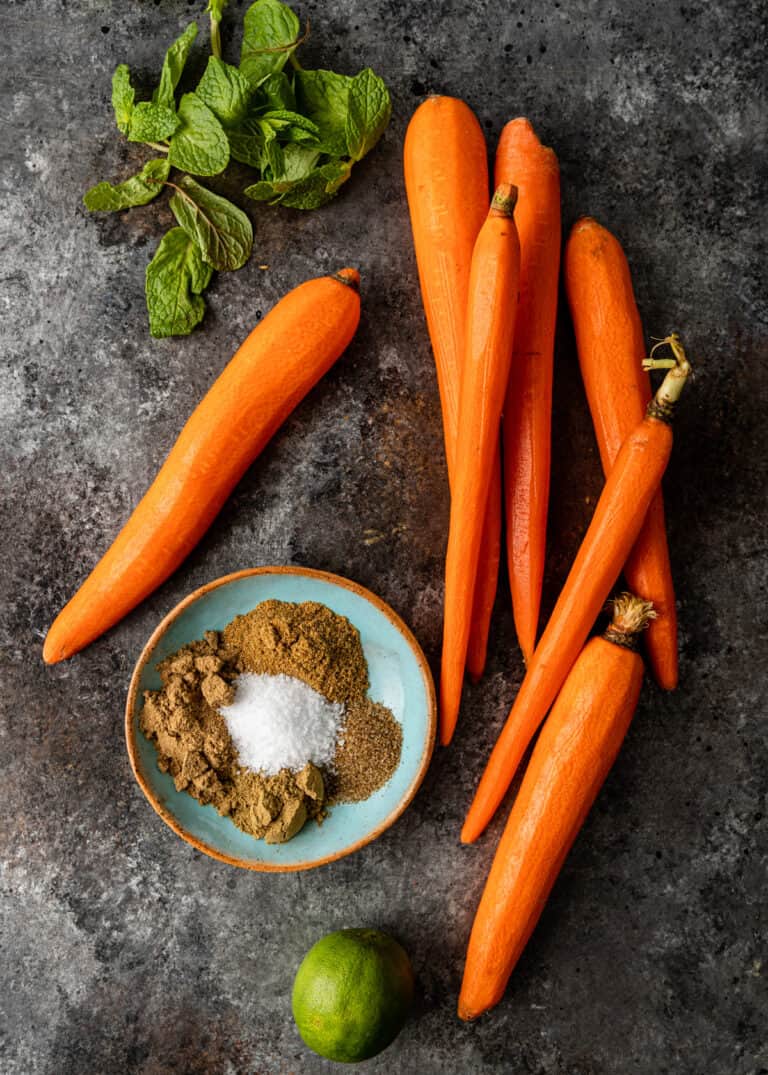published Mar 09, 2022, updated Jun 19, 2024 There’s so much to love about Moroccan cooking, but I especially enjoy the way that it incorporates fresh fruits and vegetables into its dishes. Pomegranates, tomatoes, lemons, peppers, apricots, and — my personal favorite — carrots. The secret to really good roasted carrots is in the details… or, in this case, the seasonings. The North African blend of spices and herbs used in this roasted carrot recipe also have warm and earthy Middle Eastern influence: cumin, coriander, fennel, and savory celery seeds combat the sweetness of the carrots in a harmony of flavor. A good squeeze from a fresh lime or lemon finishes these off perfectly. On their own, these caramelized Moroccan roasted carrots might be a bit heavy — spoon a little yogurt sauce onto the plate for dipping! They also make an excellent side dish for other North African main courses, including shakshuka, chicken stew, kefta, and harira.
Recommended Tools
Saute Pan – You don’t need any fancy tools to toast your own spices at home — just a saucepan! Spice Grinder – You could also use a coffee bean grinder, blender, food processor, or an old-fashioned mortar and pestle to grind the spices. Baking Sheet – These roasted carrots can be baked on a baking sheet, in a roasting pan, or with a cast iron skillet.
Storing and Reheating
Leftover Moroccan roasted carrots will last in your fridge for up to 3 days.
Carrots – Small varieties, like baby carrots, are easiest to pan roast. However, it’s easy enough to use full-sized carrots if peeled, sliced, and cut into uniform pieces so that they cook evenly. Seasonings – There are many common spices between Middle Eastern and North African cooking, and many make their appearance in this roasted carrot recipe. I recommend toasting the spices whole and then grinding for a robust, potent flavor — however, the following spices can be substituted with ¼ teaspoon of their ground counterpart: Cumin Seeds Coriander Seeds Fennel Seeds Celery Seeds – This is a savory, rather “punchy” seasoning. Toasting the seeds removes some of their pronounced bitterness. It can be substituted with caraway seeds, dill seeds, or even celery salt — but leave out the additional salt in this recipe if you choose the latter. Lime Juice – Don’t use the concentrated stuff! Squeeze one whole lime right over the roasted carrots once they leave the oven. Lemon is a fine substitute. Mint Leaves – Coarsely chopped and sprinkled over the pan, fresh mint adds a lovely brightness to these Moroccan roasted carrots. If you dislike mint, replace it with another herb common in North African cooking — rosemary, thyme, or parsley, for example.
To reheat them, place them on a baking sheet and warm in the oven at 350 degrees F. I recommend baking instead of microwaving to maintain the slightly crisp, roasted texture. Love this recipe? Share it with the world on Pinterest.









